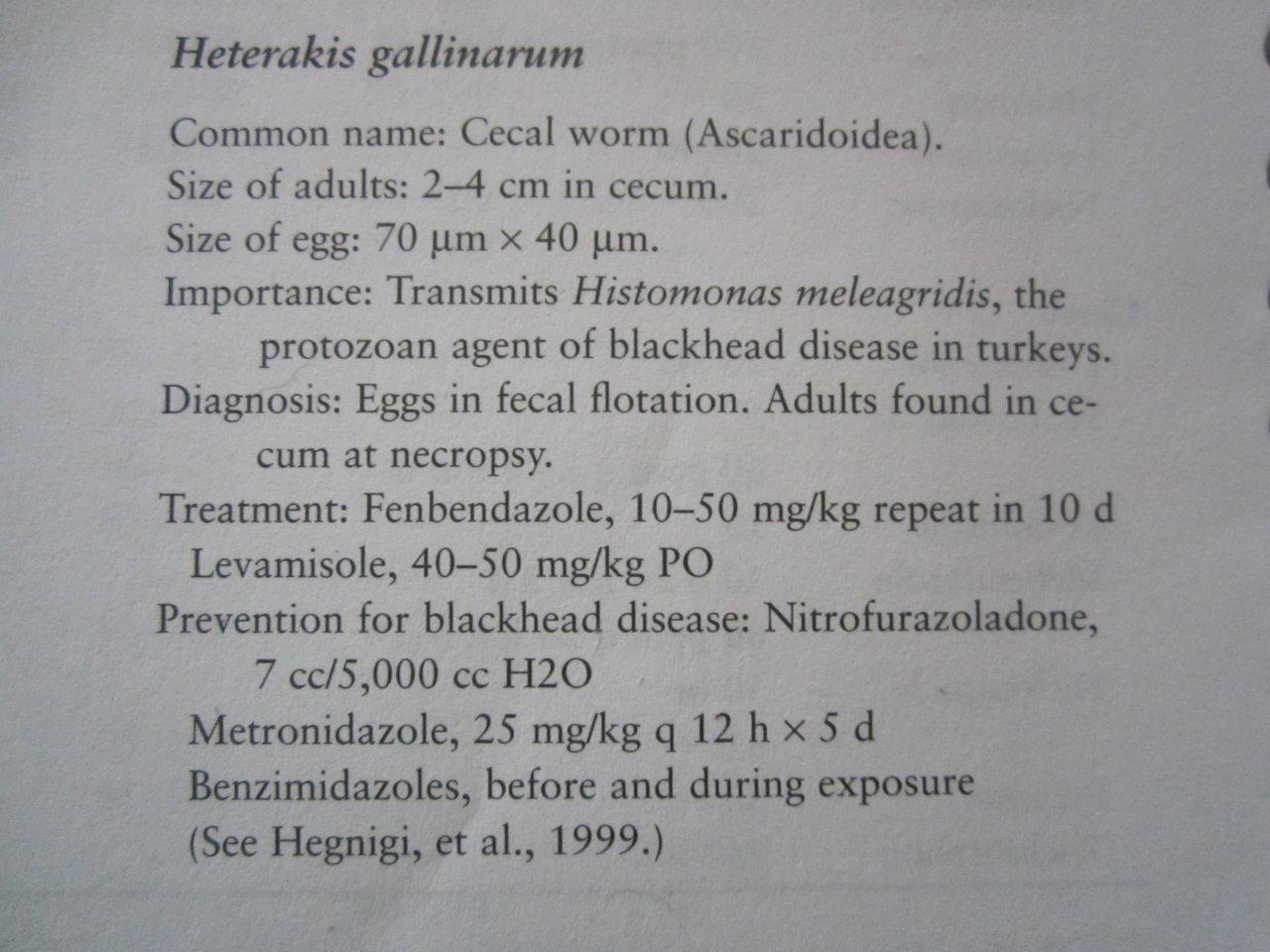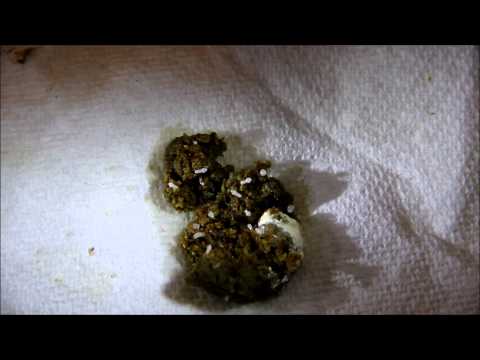For my 40k post I wanted to post something special, so I decided to start this thread. In it I will share the information I have gathered and and what I have learned from this information. It's a work in progress, so check back often. I hope that many others will join in and share what they know, and those that have questions, please don't be shy, ask away!
Topics covered will be:
From Farad:
http://www.usfarad.org/drug-wdi-faqs.html
Fenbendazole
Fenbendazole is approved as an oral suspension for laying hens in the United Kingdom for treatment of gastro-intestinal nematodes at a dose of 1mg/kg/bw for 5 days and has a zero day egg and six day meat withdrawal. In the US, since there is no tolerance, this withdrawal needs to be extended. Submit a withdrawal request to FARAD.
Piperazine
There is one study looking at piperazine residues in the eggs of treated hens. Piperazine is approved for use in laying hens in Australia and Canada at doses ranging from 130 to 200mg/kg/body weight one time and a zero day egg and meat withdrawal. Because of the lack of a tolerance in the US, FARAD recommends a 17 day egg withdrawal for piperazine used at broiler label doses in laying hens.
Ivermectin
There are limited studies available in the literature on the depletion of ivermectin residues from eggs. Given the limited studies and data available, FARAD cannot provide a blanket withdrawal interval recommendation and individuals are requested to submit a withdrawal interval request to FARAD. Submit a withdrawal request to FARAD.
Types of worms
Pictures from the Veterinary Parasitology Reference Manual - Fifth Edition
Roundworm


Cecal worm


Capillary worms


Gapeworm


Tapeworm


Picture by BYC's BeeKissed:


In the spoiler is a copy and paste from http://parasitipedia.net/index.php?
option=com_content&view=article&id=2655&Itemid=2933
AS you can see below, there are many
Internal parasites (endoparasites, worms, helminths)
Roundworms (nematodes)






Possible damage due to cecal worms

Types of Wormers
Albendazole - 100 mg/ml

Albendazole 113.6mg/ml

-Kathy
Topics covered will be:
- Types of poultry worms
- Types of wormers
- Correct dosing
- Choosing an appropriate wormer
- Worming the different species of birds, might even add a little about mammals.

- Fecal tests
- Giving the wormer
- Worming misinformation (a pet peeve of mine)
From Farad:
http://www.usfarad.org/drug-wdi-faqs.html
Fenbendazole
Fenbendazole is approved as an oral suspension for laying hens in the United Kingdom for treatment of gastro-intestinal nematodes at a dose of 1mg/kg/bw for 5 days and has a zero day egg and six day meat withdrawal. In the US, since there is no tolerance, this withdrawal needs to be extended. Submit a withdrawal request to FARAD.
Piperazine
There is one study looking at piperazine residues in the eggs of treated hens. Piperazine is approved for use in laying hens in Australia and Canada at doses ranging from 130 to 200mg/kg/body weight one time and a zero day egg and meat withdrawal. Because of the lack of a tolerance in the US, FARAD recommends a 17 day egg withdrawal for piperazine used at broiler label doses in laying hens.
Ivermectin
There are limited studies available in the literature on the depletion of ivermectin residues from eggs. Given the limited studies and data available, FARAD cannot provide a blanket withdrawal interval recommendation and individuals are requested to submit a withdrawal interval request to FARAD. Submit a withdrawal request to FARAD.
Types of worms
Pictures from the Veterinary Parasitology Reference Manual - Fifth Edition
Roundworm
Cecal worm
Capillary worms
Gapeworm
Tapeworm
Picture by BYC's BeeKissed:

In the spoiler is a copy and paste from http://parasitipedia.net/index.php?
option=com_content&view=article&id=2655&Itemid=2933
AS you can see below, there are many
Internal parasites (endoparasites, worms, helminths)
Roundworms (nematodes)
- Acuaria spp ~ Dispharynx ~ Synhimanthus spp. $. Gizzard worms. Gizzard, esophagus and proventriculus. Can be a problem in endemic regions, mainly in birds kept outdoors.
- Ascaridia spp. $$$. Chicken roundworms. Small intestine. A serious problem worldwide, also in confined operations.
- Capillaria spp. $$. Hairworms. Crop, esophagus, small intestine, large intestine.
- Heterakis spp. $$$$. Cecal worms. Cecum. Probably the most threatening worms in all kind of poultry operations worldwide.
- Oxyspirura spp. $. Fowl eyeworms. Eyes. Usually a secondary problem in individual birds kept outdoors.
- Strongyloides spp. $$. Threadworms, pinworms. Small intestine. Can be a serious problem worldwide.
- Subulura spp. $. Cecum and small intestine. A secondary problem in birds kept outdoors worldwide.
- Syngamus trachea. $$. Gapeworms. Trachea, bronchi. A serious problem in birds kept outdoors in endemic regions.
- Tetrameres spp. $. Proventriculus and esophagus. Can be a problem in endemic regions, mainly in outdoor opertaions.
- Amoebotaenia cuneata = sphenoides. $. Small intestine. Usually a secondary issue in most poultry operations
- Choanotaenia infundibulum. $. Small intestine. Usually not a major issue in modern poultry operations.
- Davainea proglottina. $. Minute tapeworms. Small intestine. Can be a problem in birds kept outdoors in endemic regions.
- Raillietina spp. $$. Small intestine. The most frequent tapeworm in poultry, however normally not a major problem.
- Prosthogonimus spp. $. Oviduct flukes. Oviduct, bursa of Fabricius. Can be a serious threat for birds kept outdoors in endemic regions.
Possible damage due to cecal worms
Types of Wormers
Albendazole - 100 mg/ml
Albendazole 113.6mg/ml
-Kathy
Last edited:





